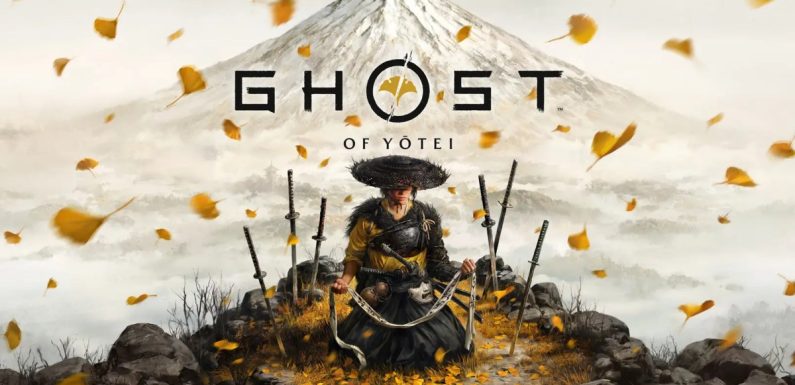
In
a
world
where
you’re
a
lonely
monarch
plopped
down
in
a
forest
with
nothing
but
an
archer
and
a
questionable
amount
of
coins
to
your
name,
you
might
think
you’re
destined
for
greatness.
Enter
Monarchy,
the
game
that
feels
like
a
royal
invitation
to
both
glory
and
utter
chaos.
It’s
like
Kingdom:
Two
Crowns
threw
a
party,
and
Monarchy
crashed
it
dressed
as
a
slightly
awkward
cousin
–
one
that
insists
it’s
“totally
original”
while
simultaneously
offering
you
to
take
a
seat
from
the
exact
same
chair
as
its
more
famous
counterpart.
With
four
scenarios
that
promise
adventure
and
a
squirrelly
mechanic
that
makes
you
feel
rich
yet
perpetually
broke,
you’ll
navigate
a
medieval
mess
that’s
equal
parts
charming
and
exasperating,
all
while
wondering
how
a
humble
monarch
like
yourself
managed
to
land
in
such
a
pickle.
We
can’t
start
this
review
properly
until
we
tackle
Monarchy’s
strong
resemblance
to
the
Kingdom
series
of
games.
On
the
one
hand,
it
could
be
argued
that
the
Monarchy
is
largely
a
clone
of
Kingdom:
Two
Crowns.
In
many
ways
the
two
games
are
identical,
aside
from
the
obvious
differing
art
styles.
There
are
some
changes
under
the
royal
crown,
but
it’s
hard
to
deny
that
Monarchy
does
stray
very
close
to
being
a
copycat.
Price:
$14.99/£12.79
Available
On:
PC,
Xbox,
PlayStationhttps://www.youtube.com/watch?v=IUGFYRl6cz0
Reviewed
On:
PS5
Developed
By:
Brain
Seal
LTD
Published
By:
Brain
Seal
LTDReview
code
provided
by
the
publisher
However,
the
more
generous
argument
is
that
Monarchy
and
games
like
Sovereign
are
inspired
by
Kingdom
and
trying
to
make
it
a
new
sub-genre.
They
say
imitation
is
the
sincerest
form
of
flattery,
after
all,
and
the
formation
of
a
new
sub-genre
will
always
involve
a
lot…flattery.
Four
scenarios
await
you
in
Monarchy,
though
determining
how
long
it’ll
take
to
beat
each
is
tough
because
this
is
the
kind
of
game
where
you’ll
die
a
lot.
The
first
has
you
under
siege
from
bandits
on
both
sides,
aiming
to
take
the
fight
to
them
and
eventually
conquer
the
bandit
lords.
Another
scenario
is
a
lovely
winter
scene,
while
the
third
one
has
you
besieging
a
castle
by
fending
off
attacks
and
gradually
putting
together
a
trebuchet.
You
start
each
run
in
the
same
way:
a
lonely
monarch
dropped
into
a
forest
with
only
an
archer
for
company.
A
chest
of
coins
is
conveniently
nearby,
providing
the
starting
funds
for
your
little
empire.
First,
you
need
to
find
a
clear
spot
in
the
trees
to
plop
down
a
tent,
which
will
act
as
central
point
for
everything
you
do.
A
few
peasants
will
be
carted
in,
including
a
construction
worker
who
immediately
erects
your
new
home.
From
there,
you
must
expand
and
conquer,
lopping
down
trees
to
make
room
for
new
buildings,
training
up
peasants
and
finding
new
and
exciting
ways
to
cock
it
all
up.

This
cart
that
appears
represents
one
of
the
few
differences
between
Monarchy
and
the
Kingdom
games.
Throw
the
driver
a
coin
each
day
and
he’ll
reappear
24-hours
later,
bearing
either
a
chest
full
of
gold
or
a
peasant
you
can
put
to
work.
You
get
to
choose
which
option
you
want,
although
I
found
the
gold
was
so
much
more
useful
than
the
single
peasant
in
almost
every
situation.
Your
main
way
of
interacting
with
the
world
is
to
behave
like
an
impossibly
rich
buffoon,
casually
tossing
coins
onto
the
ground
in
front
of
impoverished
peasants
to
purchase
their
loyalty.
Coin
in
hand,
they’ll
scuttle
off
to
your
base
and
await
a
chance
to
pick
up
a
bow
or
farm
implement
or
man
a
tower.
That
is,
of
course,
assuming
you
spent
some
gold
to
at
the
relevant
building
to
make
a
bow,
or
a
pitchfork
or
whatever
tool
is
needed.
Buildings
are
handled
in
similar
fashion
–
you
choose
where
you
want
something
put,
then
toss
coins
onto
the
ground
in
silent
demand
that
someone
gets
building.
Not
for
the
first
time
in
my
life,
I
find
myself
wishing
I
had
plenty
of
cash
so
that
I
could
simply
hurl
it
at
life’s
many
problems
and
watch
as
other
people
scrambled
to
fix
it.
Ah
well,
maybe
if
my
idea
for
a
self-toasting
marshmallow
takes
off.

To
progress
you
need
to
explore
the
surrounding
land.
Peasants
hide
away
in
little
hovels,
waiting
to
be
recruited,
and
there
are
various
other
things
you
can
find
along
the
way
that
may
aid
your
quest.
For
example,
a
stable
offers
an
upgraded
horse
with
better
stamina,
or
you
might
find
a
windmill
that
boosts
the
gold
output
of
farmsyou
can
build.
But
the
most
important
discoveries
to
find
are
an
ancient
tree
and
a
stone
mine,
as
both
offer
special
tokens
needed
to
upgrade
your
base
to
the
highest
tiers.
There’s
no
clock,
so
the
only
way
to
be
home
before
the
sun
goes
down
is
to
keep
an
eye
on
its
position
in
the
sky
whenever
there’s
a
gap
in
the
trees.
Being
home
at
night
is
vital
as
your
base
will
come
under
attack,
enemies
swarming
your
walls.
Your
Monarch
can
use
his
or
her
money
as
a
health
bar,
but
once
that’s
gone
a
single
hit
equals
game
over.
Likewise,
a
single
blow
to
your
tent/castle
is
all
it
takes
to
see
the
game
over
screen.
So
in
other
words,
being
outside
the
walls
when
darkness
falls
is
a
sure
way
to
get
murdered.
Advertisements
For
defenses,
you
have
a
few
options
available
to
you.
First
and
foremost
you
can
build
walls
to
slow
down
foes.
These
give
your
archers
time
to
unleash
arrows,
hopefully
puncturing
a
few
bad
guys
in
the
process,
although
they
are
infuriatingly
terrible
at
aiming.
Towers
are
more
effective
at
handling
the
siege
weapons
the
enemy
will
invariably
start
bringing
along
on
their
midnight
raids,
and
like
the
walls
can
be
upgraded
at
each
new
technology
level.
To
stop
you
from
turtling
up
the
game
employs
a
few
strategies:
Archers
become
progressively
more
expensive
the
more
you
make;
and
the
amount
of
towers
and
walls
you
can
erect
is
limited,
thus
your
defences
can
only
ever
be
a
few
layers
deep.

That
means
you
eventually
have
to
go
on
the
offensive,
done
by
reaching
a
high
enough
technology
level
that
you
can
begin
making
soldiers.
Peasants
be
trained
up
to
fight,
and
then
you
go
toss
out
even
more
coins
to
make
them
follow
you
to
the
enemy
encampments
and
get
to
work
slaying
some
foes.
Monarchy
is
a
pretty
hard
game
at
times.
Clearly,
you’re
meant
to
fail
a
lot
of
runs
before
getting
it
right,
and
luck
does
play
at
least
some
part
in
the
process.
Luck
can
determine
whether
you
ride
off
in
the
ride
direction
and
find
a
stables
to
upgrade
your
horse
early,
which
is
vital
because
your
starting
steed’s
stamina
is
horrendous.
Luck
can
also
play
a
part
in
how
far
away
the
main
upgrade
resources
are,
or
a
host
of
other
small
details
which
can
greatly
help.
Unfortunately,
this
is
the
part
of
the
review
where
I
have
to
drag
everything
to
a
screeching
halt
and
try
to
explain
how
and
why
Monarchy
annoyed
me.
Or
why
I
might
have
failed
Monarchy.
Have
you
ever
played
a
game
where
it
just
doesn’t
click?
And
I
don’t
mean
it
terms
of
enjoyment,
I
mean
where
something
about
how
to
play
it
doesn’t
seem
to
click.
Like,
in
principle
you
know
how
to
play
it,
but
then
in
reality
you’re
left
looking
like
a
dancer
with
two
left
feet
and
all
the
innate
rhythm
of
a
spoon.
It
felt
like
no
matter
what
I
did
I
would
wind
up
stuck
in
endless
loops
of
spending
money
to
stave
off
defeat,
meaning
not
enough
money
is
being
spent
advancing
so
I
can
go
on
the
offensive.
By
the
time
I
rebuilt
the
walls
and
upgraded
them
to
handle
the
incoming
enemy,
it
was
time
to
upgrade
them
yet
again,
leaving
me
no
time
to
do
anything
else.
If
I
focused
in
on
trying
to
advance
quicker,
I’d
get
overwhelmed
and
crushed.
Part
of
the
issue,
I
believe,
is
that
the
game
isn’t
very
effective
at
providing
any
form
of
feedback.
Every
time
I
failed
I
would
look
back
and
struggle
to
pinpoint
where
I
was
going
wrong.
Did
I
spend
too
much
time
on
the
defences
rather
than
expansion?
Were
more
trees
needing
chopped
down?
Should
I
have
built
more
houses
to
keep
a
stream
of
peasants
coming,
or
should
I
have
made
more
farms
for
a
steady
income?
Do
I
just
need
to
spam
archers?
I
could
never
tell
and
it
left
me
struggling
to
figure
it
all
out.

Another
reason
I
think
I
struggled
is
that
Monarchy
doesn’t
allow
much
freedom
in
how
you
approach
it.
There
seems
to
be
optimal
way
to
play
and
deviating
too
much
from
it
results
in
failure.
Figuring
out
that
optimal
path
is
tricky
though,
as
the
game
doesn’t
provide
a
lot
of
information
to
go
on
or,
like
I
said,
much
feedback.
Advertisements
Like
I
said
though,
some
of
that
–
perhaps
even
all
of
it
–
might
have
been
me.
Something
in
my
brain
struggled
with
Monarchy
from
the
very
start,
and
a
quick
browse
of
some
Steam
discussion
threads
reveals
that
I’m
not
alone,
whereas
other
people
seem
to
be
doing
okay.
Still,
patches
for
difficulty
are
already
being
planned,
indicating
that
the
developers
reckon
something
is
a
little
off
too.
Whatever
the
issue,
it
coloured
almost
all
of
my
time
with
the
game,
leaving
me
frustrated
and
annoyed.
I
don’t
think
I’ve
ever
once
felt
like
In
couldn’t
beat
a
game,
but
Monarchy
had
me
feeling
that
way.
Struggling
because
of
a
lack
of
skill
is
completely
okay
–
I’ve
played
some
hard-as-titanium-balls
games
and
barely
scraped
through
them,
but
rarely
have
I
ever
felt
like
my
failure
has
been
because
I’m
just
not
understanding
something
fundamental
about
it.
It’s
a
frustrating
feeling.
In
Conclusion…
In
conclusion,
Monarchy
presents
an
interesting
blend
of
familiar
mechanics
from
the
Kingdom
series
while
attempting
to
carve
out
its
own
identity
within
a
budding
sub-genre.
While
its
charming
aesthetics
and
varied
scenarios
offer
a
promising
start,
the
game
ultimately
stumbles
due
to
its
high
difficulty
and
lack
of
effective
feedback.
The
recurring
feelings
of
frustration
stem
from
a
rigid
approach
to
gameplay,
leaving
me
feeling
trapped
in
a
cycle
of
monetary
management
rather
than
strategic
progression.
Despite
the
potential
for
enjoyment,
the
disconnect
between
intention
and
execution
can
overshadow
the
experience.
For
those
who
thrive
on
deciphering
intricate
gameplay
systems,
Monarchy
may
prove
to
be
a
rewarding
challenge.
However,
for
players
seeking
a
more
forgiving
learning
curve,
it
might
be
worthwhile
to
wait
for
patches
and
updates
that
could
address
these
difficulties,
allowing
the
game
to
shine
as
it
was
intended.





